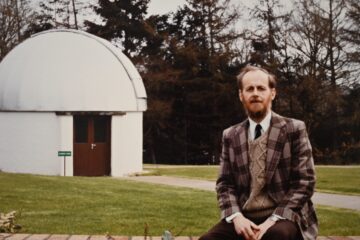March 2020: The clocks go forward on Sunday for what could be the penultimate British Summer Time (BST) observed on the island of Ireland.
The European Parliament has voted to scrap daylight saving time (the practise of moving the clocks forward one hour during the summer months) from the end of 2021 which could see the introduction of a time-zone border in Ireland as Northern Ireland has left the EU. It is not something the Irish government is contemplating especially as the decision to move away from daylight savings time must receive the backing of the majority of EU member states which is unlikely.

The vote to move away from daylight saving time came last March following widespread consultation in Europe in 2018. Around 4.6 million replies were received with over 99 % of replies coming from citizens. 84% of all respondents want to abolish the bi-annual time switch, while 16% want to keep it. The main reason given by respondents wishing to abolish the current system is human health, followed by lack of energy saving.
One man who has experienced life with and without the longer summer evenings is Professor Michael Burton from Armagh Observatory and Planetarium (AOP).

Professor Burton said: I grew up in Australia where it usually gets dark during the summer around 8.30pm. I have to say since moving to Armagh I have grown to really love the long summer evenings we have in this part of the world. “It is a personal preference, but it does encourage a more active lifestyle when people are generally more energetic in the evenings. Having fantastic long evenings just makes more sense to me.”
Daylight saving time was first introduced in Germany in 1916 with the UK adopting it a short time later. It was introduced as a means to extend the daylight and therefore consume less energy during the war effort. It also gave farmers more daylight working hours during the summer months.
Professor Burton said: “There is no astronomical reason for daylight saving time, it is solely a societal issue. However, I am often asked about it as the clocks change twice-a-year around the time of the equinox. When daylight saving time was introduced it was a more industrial time, but society and lifestyles have now changed so I can understand why the conversation around scrapping the time changes comes up so frequently. With modern technology and increased automation in the agricultural industry, the savings are probably quite negligible, but for me I hope daylight saving time remains.”

Meanwhile, Armagh Observatory and Planetarium remains closed. The centres would have been in lockdown in light of the Prime Minister’s latest guidance regarding Covid-19 but they are currently closed anyway for exciting refurbishment work, including a new digital projector and sensory room.
The Covid-19 crisis has led to adjustments in the timeframe for re-opening but AOP is continuing to engage with the public through regular posts on social media. Thousands of people have logged onto Facebook to enjoy the Science at Home series which showcases fun and safe experiments children can do during the school closures.
Armagh Observatory and Planetarium is continuing to take daily weather recordings. These daily records began in 1795 and have continued unbroken ever since. The records are hugely important for a number of reasons including climate change studies.

To enjoy the Science at Home series, follow Armagh Observatory and Planetarium on Facebook. For further information visit www.armagh.space.



0 Comments